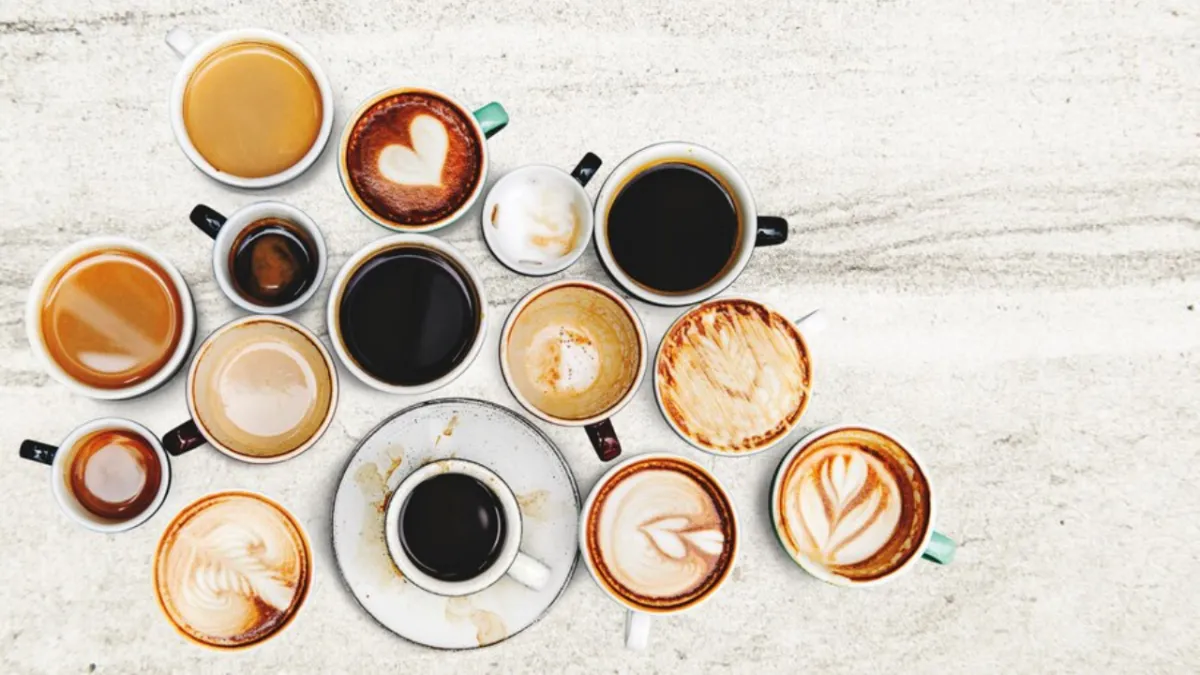
Which Coffee is Best for Fertility? Understanding the Impact of Your Daily Brew
Which Coffee is Best for Fertility? Understanding the Impact of Your Daily Brew
Want a baby but still can’t get off coffee even after reading our free eGuide, The Hormone-Friendly Coffee Detox: Your 2-Week Plan to Ditch Caffeine Without the Crash? Here are some things to note and make sure to limit. If you're pregnant, always consult your doctor before making any changes to your coffee intake.
For many, coffee is more than just a morning pick-me-up; it's a cherished ritual. The rich aroma, comforting warmth, and that instant burst of energy make it a staple in daily life. It’s important to know how different types of coffee affect fertility. Some coffees are more likely to harm fertility than others, while some can be part of a balanced lifestyle. Let's break down the best types of coffee for fertility and how much you should be drinking.
1. Filtered Coffee (Brewed Coffee)
Impact on Fertility: Filtered coffee is the safest option when it comes to fertility. It contains moderate amounts of caffeine and is free from most harmful compounds found in unfiltered coffee like cafestol.
Why it’s good: Filtered coffee contains fewer harmful compounds that can impact fertility. It also offers antioxidants, which support overall reproductive health.
Recommended intake: You can safely enjoy 1-2 cups per day (around 200-300 mg caffeine). This amount is within the recommended limit for women trying to conceive.
Source: Research suggests that moderate coffee consumption is safe for fertility, with no significant negative effects when consumed in moderation (Source: Nutritional Journal, 2017).
2. Espresso
Impact on Fertility: Espresso has a higher caffeine concentration than regular brewed coffee, with around 63 mg of caffeine per shot. While a small amount won’t hurt, drinking multiple shots per day can add up quickly, potentially exceeding the recommended caffeine limits for fertility.
Why it’s good: One shot of espresso per day is unlikely to have a major impact on fertility, especially if consumed occasionally.
Recommended intake: Limit espresso to 1 shot per day. If you drink more than 1 shot, you may exceed the 300 mg caffeine limit.
Source: According to the American College of Obstetricians and Gynecologists, limiting caffeine intake to under 300 mg/day is advised during conception efforts.
3. Decaf Coffee
Impact on Fertility: Decaf coffee is the best option for fertility if you're craving the taste of coffee but want to avoid the potential downsides of caffeine. It contains only small amounts of caffeine (about 2-5 mg per 8-ounce cup).
Why it’s good: Decaf coffee provides the comfort of coffee without the negative effects of caffeine. It also has antioxidants, which are beneficial for reproductive health.
Recommended intake: You can enjoy 3-4 cups of decaf coffee per day without worrying about caffeine’s impact on fertility.
Source: Studies show that decaffeinated coffee has little to no impact on fertility and is a good alternative for those sensitive to caffeine (Source: National Institutes of Health).
4. French Press or Unfiltered Coffee
Impact on Fertility: French press coffee, also known as unfiltered coffee, retains more of the compound cafestol, which has been shown to raise cholesterol levels. High cholesterol can disrupt hormonal balance, negatively affecting fertility.
Why it’s harmful: French press coffee has a higher concentration of cafestol, which may increase cholesterol and interfere with hormone levels.
Recommended intake: If you’re trying to conceive, it's best to limit this type of coffee to once a week or avoid it altogether.
Source: Unfiltered coffee has been shown to have a more significant effect on cholesterol and fertility than filtered coffee (Source: European Journal of Clinical Nutrition, 2006).
5. Cold Brew Coffee
Impact on Fertility: Cold brew coffee is often more concentrated than regular brewed coffee, meaning it can contain higher amounts of caffeine. It may increase your daily caffeine intake, potentially affecting fertility if consumed in large quantities.
Why it’s harmful: Due to its concentration, cold brew coffee can lead to excessive caffeine intake if you drink too much.
Recommended intake: Stick to 1 small serving of cold brew per day to avoid overconsumption of caffeine.
Source: Caffeine’s effects on fertility can vary by individual, but the general recommendation is to limit over 300 mg caffeine daily (Source: Mayo Clinic).
How Much Coffee is Safe for Fertility?
Most health experts recommend limiting caffeine intake to 300 mg per day when trying to conceive. That’s about 2-3 cups of filtered coffee or 1 shot of espresso. Higher caffeine intake can increase the risk of miscarriage, delayed conception, and hormonal imbalances.
Fertility-Friendly Coffee Choices
Best for fertility: Filtered coffee and decaf coffee are the safest choices.
Enjoy in moderation: Espresso and cold brew can be fine in small amounts, but keep the servings limited.
Avoid or limit: French press and unfiltered coffee should be consumed sparingly due to the higher concentration of cafestol.
Conclusion
If you’re trying to conceive, it’s essential to be mindful of your coffee habits. Stick to 1-2 cups of filtered coffee or decaf coffee for a safer approach to caffeine. Limit espresso and cold brew to avoid excessive caffeine, and consider skipping French press coffee altogether to protect your hormonal balance.
For more tips on fertility-friendly habits, check out our free eBook, The Hormone-Friendly Coffee Detox: Your 2-Week Plan to Ditch Caffeine Without the Crash.
